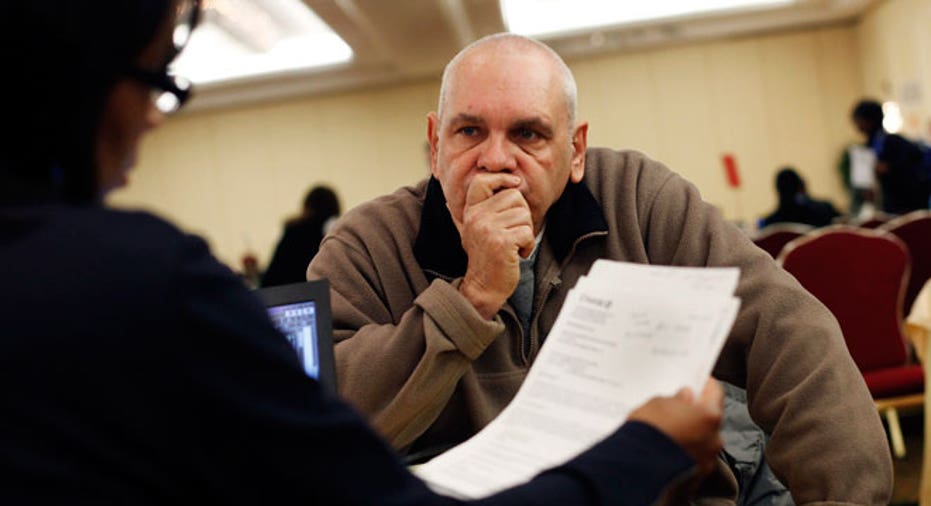How Boomers can Shed Debt in Retirement

It’s no secret that we have a spending problem.
Consumers living above their means and buying homes they couldn’t afford contributed to the housing crisis that led to the 2008 Great Recession. And the amount of credit card debt we have racked up is staggering. Even our country’s budget deficit is out of control.
And boomers are no different.
Policy and advocacy group Demos found in a recent survey that of low and middle income households carrying credit card balances, people 65 and up have more credit card debt than any other age group, at an average of $9,300. This trend has forced more retirees to seek help from credit counseling agencies to help reduce and manage their debt.
I reached out to Katie Libbe, vice president of Consumer Insights for Allianz Life Insurance Company of North America, to discuss how boomers can shed credit debt before or in retirement. Here is what she had to offer:
Boomer: What advice would you give to baby boomers nearing retirement with high credit card debt and how they can best reduce these debts?
Libbe: It starts with taking a long, hard look at monthly expenses and determining whether or not they need to be paid via credit card or if they can instead be handled by an automatic payment from a banking/checking account. Too often we use a credit card to pay for things that should be covered in cash or a debit card and then only make the minimum monthly payments on the credit cards, which ends up costing a lot in paid interest on the account.
Getting a handle on monthly expenses is particularly important for baby boomers because they need to have a good idea of their fixed costs heading into retirement and what sources of guaranteed income they'll need to pay those costs. If they can identify those basic costs and learn how to cover them without using credit, they'll have a much better chance of achieving better financial security in retirement.
Boomer: What are the pros and cons for boomers that are able to pay off their mortgage before retirement?
Libbe: It all depends on the interest rate attached to the mortgage. If you got a good rate when purchasing your home, the pros of continuing to pay the mortgage and monthly interest may free up funds for other uses (such as paying down credit card debt with higher interest), and that may be more beneficial in helping to reduce overall debt. If the interest rate on the mortgage is higher, it might make more sense to pay off that mortgage quicker and avoid all of the interest paid over the life of the mortgage.
Boomer: With the increased number of baby boomers contributing toward their children or grandchildren's higher-education expenses, even co-signing student loans, what should they look out for so as to not get in debt over their heads?
Libbe: This is a major concern as it is natural for parents and grandparents to want to help out with the rising costs of higher education, often at the expense of their own retirement security. The best advice is for boomers to identify their fixed costs in retirement as early as possible and ensure they have a source of guaranteed income within their retirement portfolio that will cover those costs. After they've planned for how they can cover those needs, they can then focus on how to use additional assets to assist children or grandchildren with education expenses.
Many boomers have worked hard to accumulate their personal retirement savings, which, due to the lack of pensions (guaranteed income), are more important than ever to their retirement security. It's crucial that they don't alter their plans late in the game because they may not be able to recover.
Boomer: Is debt free retirement the only way to financial security?
Libbe: To accomplish true financial freedom, being debt free is a must - but boomers can still achieve a measure of financial security if they manage a low amount of debt during retirement. Sometimes taking on a small amount of debt makes sense, so boomers shouldn't necessarily be afraid of debt if they can manage the associated expenses. This can be classified as "smart debt". In general, if the asset you are financing will likely appreciate, then it makes perfect sense to borrow money - you get the benefit of appreciation on 100% of the asset and have used other peoples' money to get that appreciation. But, it's important to be cautious with this approach because, as we have seen, it can be deadly if the asset doesn't appreciate as planned.
They key is understanding how that debt works into your larger financial picture. Everyone's financial situation is different, so it makes sense to develop a plan with the help of a financial professional who can provide guidance on not only debt, but also the impact of taxes, Social Security, withdrawal strategy and retirement income. Generally, as boomers approach "the transition period" (five-10 years from the start of retirement), they should become very cautious when taking on new debt and work more aggressively to pay down debt.



















